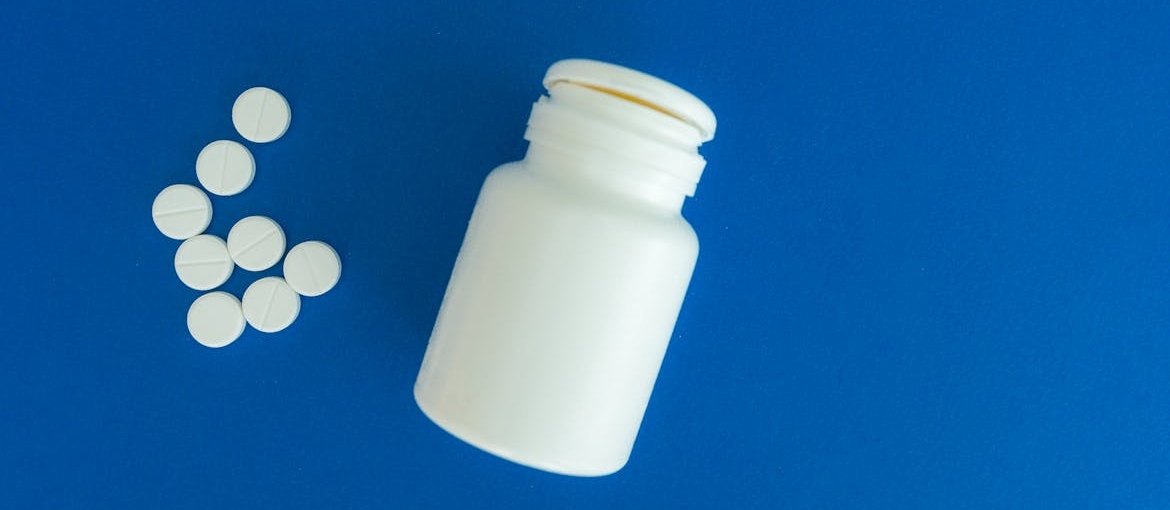Cocaine Withdrawal and Treatment
Harmony Ridge offers specialized treatment options for cocaine withdrawal, providing comprehensive support to help individuals safely detox and begin their journey toward lasting recovery from addiction.
Cocaine withdrawal can be intense and difficult to manage without professional help. Cocaine is a highly addictive stimulant, and regular use leads to physical dependence. Once a person stops using, they will experience withdrawal symptoms, which can be painful and dangerous without proper cocaine withdrawal treatment and cocaine withdrawal management. Many people try to withdraw at home, but unmanaged withdrawal increases the risk of complications, including severe cravings and relapse. The safest and most effective approach is medical detox in a treatment center, where professionals can monitor symptoms and provide medications if needed. Harmony Ridge Recovery Center will help you manage cocaine withdrawal and start living a healthier life. Contact us today!
Signs and Symptoms of Cocaine Withdrawal
Cocaine withdrawal is not as physically intense as withdrawal from substances like alcohol or benzodiazepines. However, it still brings serious psychological symptoms that can be dangerous if not managed properly. Many individuals experience cocaine withdrawal symptoms such as severe mood disturbances, intense cravings, and extreme fatigue, making it difficult to quit without help.
Common Cocaine Withdrawal Symptoms
When a person stops using cocaine, their brain and body must adjust. Withdrawal symptoms can vary in severity based on the duration and intensity of use. Common cocaine withdrawal symptoms include:
- Restlessness and irritability
- Extreme exhaustion and fatigue
- Anxiety and panic attacks
- Depression, sometimes leading to suicidal thoughts
- Intense cravings for cocaine
- Vivid and disturbing dreams
- Decreased appetite
- Loss of interest in sex
- Inability to feel pleasure (anhedonia)
- Difficulty concentrating
- Slowed reaction times and delayed thinking
- Chills, tremors, and physical discomfort
These cocaine withdrawal symptoms can last for days or even weeks, depending on the individual’s history of cocaine use.

Why is Professional Treatment for Cocaine Withdrawal Important?
The psychological effects of cocaine withdrawal, including severe depression and intense cravings, put individuals at high risk for relapse and self-harm. Without medical supervision, withdrawal can feel overwhelming, increasing the likelihood of returning to cocaine use to relieve discomfort.
A licensed treatment center provides a safe environment with medical support to manage symptoms. Professionals can offer medications, therapy, and around-the-clock care to ease withdrawal and reduce cravings. Detoxing and treatment for cocaine withdrawal in a structured setting ensures a smoother transition into ongoing treatment, increasing the chances of long-term recovery.
Side Effects and Risks of Cocaine Use
Cocaine use leads to intense euphoria, but over time it reduces the brain’s ability to enjoy natural rewards, creating dependence and making quitting difficult without professional help. Short-term side effects include constricted blood vessels, elevated heart rate, anxiety, paranoia, and even sudden death. Long-term use causes irreversible damage, including brain damage, heart disease, weight loss, respiratory issues, and increased overdose risk. Because of the severe risks, medical supervision is essential for safe cocaine withdrawal and recovery.

Cocaine Withdrawal Timeline and Phases
The length and severity of cocaine withdrawal vary from person to person. Several factors influence the timeline, including the frequency and amount of cocaine use. Since cocaine has a short half-life, withdrawal symptoms can begin within 90 minutes of the last dose. Withdrawal typically occurs in three phases:
- Crash
- Acute withdrawal
- Extinction
The Crash Phase (First Few Hours to a Few Days)
This phase begins almost immediately after stopping cocaine use. The body crashes due to the sudden absence of the drug’s stimulating effects. Symptoms during this phase include:
- Extreme fatigue and exhaustion
- Irritability and restlessness
- Depression and suicidal thoughts
- Increased appetite
- Lack of motivation
During this phase, individuals may feel emotionally unstable, which is why medical supervision is crucial. Professional detox programs provide emotional support and, if necessary, medications to reduce discomfort and stabilize mood.
The Acute Withdrawal Phase (1 to 10 Weeks)
As the body adjusts, some symptoms improve, but psychological symptoms intensify. This phase is the most challenging because of strong cravings and mood instability. Common symptoms include:
- Intense cocaine cravings
- Low energy and fatigue
- Irritability and mood swings
- Erratic sleep patterns
- Difficulty focusing and concentrating
The risk of relapse is highest during this stage. Individuals struggling with cravings and emotional distress may return to drug use without structured support. Inpatient or outpatient rehab programs provide therapy, coping strategies, and medical support to prevent relapse.
The Extinction Phase (Up to 6 Months)
During this phase, symptoms gradually fade, but cravings may still come and go. Individuals dealing with Post-Acute Withdrawal Syndrome (PAWS) may continue experiencing:
- Sudden mood swings
- Episodes of depression or anxiety
- Occasional strong cravings
Therapy and aftercare support are essential at this stage. Long-term recovery plans, including counseling and support groups, help individuals stay on track and prevent relapse.

Signs Indicating a Need for Cocaine Withdrawal Treatment
Recognizing when professional treatment is necessary can make the difference between relapse and lasting recovery. Some individuals may attempt to quit on their own, but withdrawal symptoms can become overwhelming, increasing the risk of relapse. Seeking cocaine withdrawal treatment is essential when withdrawal symptoms become unmanageable or dangerous. The signs are:
- Increased drug tolerance – Over time, frequent cocaine use leads to higher tolerance, meaning a person needs larger amounts of the drug to feel the same effects. This increases the risk of overdose and makes withdrawal symptoms more intense, requiring medical supervision to ensure safety.
- Failed attempts at self-detox – Many people try to quit cocaine on their own, only to relapse due to unbearable cravings, mood swings, or fatigue. If multiple attempts at detoxing alone have failed, it is a clear sign that professional treatment is needed to provide the structure and support necessary for success.
- Severe physical or psychological symptoms – Cocaine withdrawal often causes depression, anxiety, suicidal thoughts, and extreme fatigue. Some individuals experience paranoia or psychotic symptoms, making self-detox dangerous. Medical detox ensures that symptoms are managed safely, reducing discomfort and lowering the risk of relapse.

Cocaine Withdrawal Management Options
Managing cocaine withdrawal safely requires professional care to reduce discomfort and prevent relapse. While withdrawal symptoms are mostly psychological, they can be intense and difficult to handle without support. Medical detox and medication-assisted management can ease symptoms and provide a structured path toward recovery.
Medical Detox for Cocaine Withdrawal
In a supervised detox program, individuals receive 24/7 medical monitoring to help them cope with withdrawal symptoms. Since cravings, anxiety, and depression can be severe, medical detox provides a structured and secure environment where relapse is prevented.
At Harmony Ridge Recovery Center, medical professionals oversee the detox process and offer treatments to stabilize mood, ease discomfort, and reduce cravings. Once detox is complete, individuals can transition into an inpatient or outpatient treatment program to continue their recovery.
Medication for Cocaine Withdrawal Management
There is no FDA-approved medication specifically for cocaine withdrawal, but some medications can help manage symptoms and support recovery. Buprenorphine and naltrexone are sometimes used in treatment to help reduce cravings and stabilize individuals during withdrawal. While they are primarily used for opioid addiction, some studies suggest they may help with stimulant withdrawal under medical supervision.
Medication use in detox is carefully monitored by experts in medication assisted treatment, to ensure safety and comfort throughout the process. While medications can help, they are most effective when combined with therapy and structured addiction treatment.

Treatment Options After Cocaine Detox
After completing a cocaine detox, individuals need structured treatment to address the psychological and behavioral aspects of addiction. Detox alone is not enough, as cravings and mental health challenges can persist. The right treatment program depends on the severity of addiction, personal needs, and support system. Treatment options include inpatient rehab, outpatient care, therapy, and dual diagnosis treatment.
Inpatient Treatment for Cocaine Withdrawal
Inpatient rehab provides a structured and supportive environment where individuals can recover under 24/7 medical supervision. At Harmony Ridge Recovery Center, patients live on-site and receive care from nurses, clinicians, and doctors who help them manage withdrawal symptoms and emotional challenges.
During inpatient rehab treatment, individuals participate in therapy, medical care, and addiction education in a drug-free setting. As patients progress, they step down to partial hospitalization programs (PHP) and intensive outpatient care (IOP), gradually transitioning to more independent recovery.
Outpatient Cocaine Withdrawal Management
For individuals with less severe withdrawal symptoms or strong external support, outpatient rehab provides flexible treatment while allowing them to maintain responsibilities like work, school, or family. Patients either live at home or in a sober living environment, attending treatment sessions at scheduled times.
At Harmony Ridge Recovery Center, outpatient rehab is part of a continuum of care, helping individuals transition from detox and inpatient treatment to a more independent recovery while still receiving therapy, medical support, and relapse prevention strategies.
Therapies for Cocaine Withdrawal Treatment
Therapy is essential for overcoming cocaine addiction. At Harmony Ridge Recovery Center, we offer:
- Individual therapy: Patients work with licensed therapists in cognitive behavioral therapy (CBT) to address cravings, triggers, and unhealthy thought patterns. Therapy helps patients build coping skills and prevent relapse.
- Group therapy: Group sessions provide peer support and shared experiences, allowing individuals to gain insight into addiction and learn from others in recovery. These sessions help reduce isolation and reinforce long-term commitment to sobriety.

Dual Diagnosis Treatment for Co-Occurring Disorders
Mental health disorders often co-exist with cocaine addiction, making it essential to treat both conditions at the same time. This is known as dual diagnosis treatment. Some individuals use drugs to self-medicate anxiety, depression, or trauma, while others develop mental health issues due to substance abuse.
At Harmony Ridge Recovery Center, our dual diagnosis program provides specialized treatment for both addiction and mental health disorders, increasing the likelihood of long-term recovery. Addressing one condition without treating the other can lead to relapse, so a comprehensive approach is essential.
Risks of Cocaine Withdrawal Without Treatment
Attempting to withdraw from cocaine without medical supervision can be dangerous. While cocaine withdrawal is not as physically life-threatening as withdrawal from alcohol or opioids, its psychological effects can be severe and unpredictable. The risks include:
- High risk of relapse – Intense cravings during withdrawal make relapse likely without medical support, increasing the risk of overdose.
- Severe depression and suicidal thoughts – The sudden drop in dopamine can cause extreme mood swings and suicidal thoughts, requiring professional intervention.
- Physical and psychological distress – Fatigue, tremors, paranoia, and panic attacks can make withdrawal unbearable without medical care.
- No medical support for complications – Irregular heart rate, high blood pressure, and severe agitation can arise, making medical supervision essential for safety.
Why Choose Harmony Ridge Recovery for Cocaine Withdrawal Treatment
Choosing the right treatment center is crucial for successful cocaine withdrawal management and lasting recovery. At Harmony Ridge Recovery Center, we provide evidence-based, personalized care to help individuals safely detox and transition into long-term sobriety.
Our licensed medical professionals, therapists, and addiction specialists use scientifically proven methods to manage withdrawal and support recovery. We tailor treatment plans to each individual, combining medical detox, therapy, and holistic approaches for a well-rounded experience.
Located in West Virginia’s Mountwood Park, our facility offers a calm, structured setting with 24/7 medical supervision. After detox, patients continue recovery through inpatient or outpatient programs with therapy and relapse prevention support.
Our cocaine addiction treatment center offers:
- Safe, medically supervised detox
- Individual and group therapy for addiction recovery
- Dual diagnosis treatment for co-occurring mental health disorders
- Holistic therapies, including outdoor activities and mindfulness
- A strong alumni support network to sustain long-term sobriety
Since 2018, we have helped countless individuals overcome addiction and rebuild their lives. Our commitment to long-term recovery and relapse prevention ensures that patients receive the tools needed for lasting success.

Get Help from Harmony Ridge Today
The first step toward cocaine withdrawal treatment is recognizing that help is needed. At Harmony Ridge Recovery Center, we provide safe, effective, and compassionate care to guide individuals through withdrawal and long-term recovery. Our licensed medical professionals offer 24/7 supervision, ensuring a secure detox process while addressing the emotional and psychological challenges of withdrawal. Beyond detox, we offer individualized treatment plans, including therapy, relapse prevention, and aftercare support, helping patients regain control over their lives. Reach out to Harmony Ridge Recovery today for effective cocaine withdrawal treatment and start your journey toward lasting recovery.
FAQ
How Long Does Cocaine Withdrawal Last?
Cocaine withdrawal typically lasts between one to ten weeks, depending on the individual’s history of use. The process occurs in three phases: the crash phase (a few hours to a few days), the acute withdrawal phase (1 to 10 weeks), and the extinction phase, where cravings may come and go for up to six months.
Is There Cocaine Withdrawal Medication?
There is no FDA-approved cocaine withdrawal medication, but buprenorphine and naltrexone may help reduce cravings under medical supervision. Other medications, such as antidepressants, anti-anxiety medications, and sleep aids, can be prescribed to manage symptoms like depression, anxiety, and insomnia during withdrawal.
What are the Most Common Symptoms of Cocaine Withdrawal?
Common cocaine withdrawal symptoms include fatigue, depression, anxiety, intense cravings, mood swings, difficulty sleeping, and irritability. Some individuals may also experience suicidal thoughts or paranoia, making medical supervision essential for safety.
Can You Detox from Cocaine at Home?
While some people attempt self-detox, doing so can be dangerous and increase the risk of relapse due to severe cravings and emotional distress. Medically supervised detox in a cocaine withdrawal treatment center like Harmony Ridge Recovery ensures safety, comfort, and professional support throughout withdrawal.
What is the Safest Way to Manage Cocaine Withdrawal?
The safest way treatment for cocaine withdrawal is done through a medical detox program. Professional treatment provides 24/7 supervision, medical support, therapy, and relapse prevention strategies to help individuals detox safely and transition into long-term recovery.
What Happens after Cocaine Detox?
After detox, individuals should enter a structured addiction treatment program, such as inpatient or outpatient rehab. These programs provide therapy, dual diagnosis treatment, and relapse prevention strategies to help maintain sobriety. Without follow-up care, the risk of relapse is high.
Is Cocaine Withdrawal Dangerous?
While not typically life-threatening, cocaine withdrawal can be dangerous due to the risk of severe depression, suicidal thoughts, and intense cravings. Professional medical support during cocaine withdrawal treatment ensures a safe and effective withdrawal process while reducing the risk of complications.
Jump To Section
Begin Your Journey to Healing Here
Ask me about recovery, I can help you!
Our recovery specialists are standing by 24/7 to help you or your loved one.
Or call us: 


